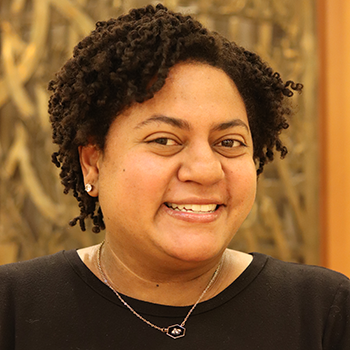Parashat R’eih begins with the words “See, this day I set before you a blessing and a curse: blessings if you obey the commandments of your God that I enjoin upon you this day; and curse, if you do not obey the commandments of your God, but turn away from the path that I enjoin upon you this day and follow other gods, whom you have not experienced” (Deuteronomy 11:26-28). The word r’eih comes from the verb meaning “to see,” and when one looks closely there is certainly much to see both literally and figuratively in this week’s parashah.
When examining this blessing and curse literally, Deuteronomy 11:30 becomes even more fascinating; the Israelites are told, “When your God brings you into the land that you are about to enter and possess, you shall pronounce the blessing at Mount Gerizim and the curse at Mount Ebal.” When seeing these mountains on a map, one will notice two mountains standing side by side with a valley in between. This does not seem to be a coincidence, but rather a visual representation of the proverbial fork in the road. Choose this path to receive all that God has promised you and your ancestors or choose the other, where you know very little about what lies ahead of you.
Next, when examining this blessing and curse figuratively, the Israelites are being presented with a choice. They have free will to choose which path they will seek. It is up to each Israelite to make the choice to fulfill their part.
Thus, it is up to the Israelites to exercise their free will. Are we going to be obedient and follow God’s rules, or disobey them and be cursed? Are we going to sit idly by and not utilize our free will, allowing others to make decisions for us? Just as Moses was addressing the newer generation of Israelites who, perhaps, had not physically been at Mount Sinai, I believe he is also addressing his warning to us today.
The world has changed a great deal since biblical times, but some human traits have not. People have the ability to make good and bad choices. These choices may not simply be whether to eat cheese on a burger or consume bacon, but choices that may involve the life and death of their spirituality. The Reform Movement prioritizes individual intention and free will in people’s observance, but in no way does it allow for the lack of an ethical and moral compass.
Are we using our free will to make intelligent, intentional choices and see the world around us for what it really is? Are we doing what the Israelites did in times past, following the ways of the people in the land they inhabited because assimilation is easier? How far have we really come in using our free will to receive the blessings of God?
In addition to what this parashah states about charity and helping those in need, many Jews today have added more ways to worship God. Many of us are involved in social justice movements and assisting those wrongly accused of crimes. Many of our synagogues are safe havens for those individuals who fear ICE and unjust imprisonment. Some of us are involved with women’s rights and anti-human trafficking work. All these things include but also go beyond the study of Torah and saying prayers. They allow us to, as Rabbi Abraham Joshua Heschel said, “pray with our feet.” They allow us to see the world around us and work for the good of mankind in a tangible way. We can still choose whether or not to keep kosher, but we cannot choose to keep silent and stand idle when others are suffering. We are each given the choice each day to choose which mountain to ascend. Will we choose a blessing and subsequently use our free will to be a blessing?
Explore Jewish Life and Get Inspired
Subscribe for Emails

